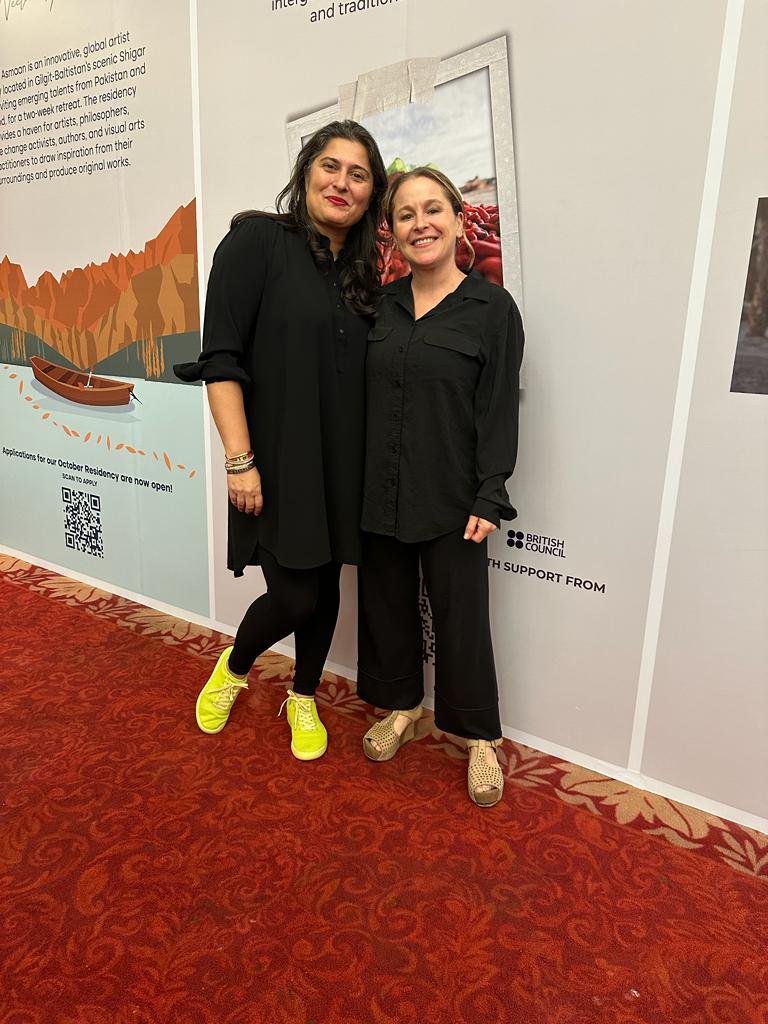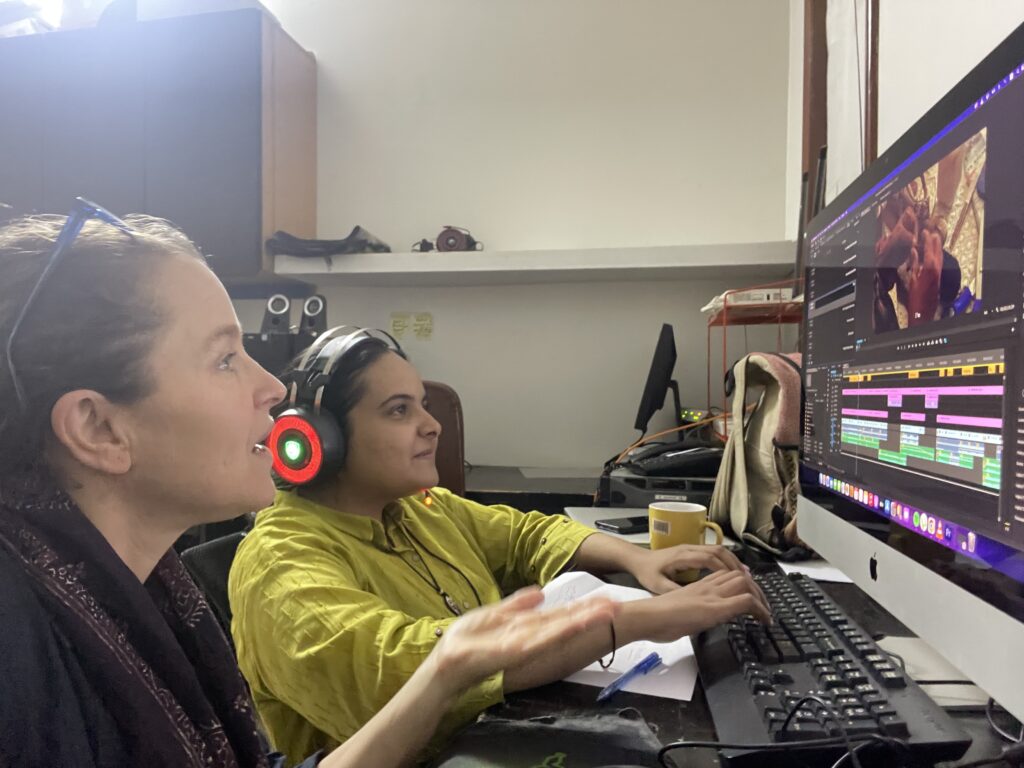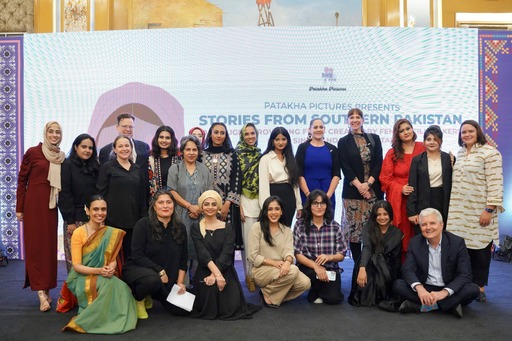VMA’s Epstein Helps Pakistani Women Tell Their Stories
After mentoring 10 Pakistani women filmmakers for months through Zoom, Jesse Epstein found it exciting to work with them in their home country, to promote them to diplomats and film executives.
“It was exciting to be connected to filmmakers who are so passionate and brave about making documentaries,” said Epstein, a Visual and Media Arts affiliated faculty member. “Every one of them was challenging a huge taboo in their society through their documentary. I wanted to help support their stories.”
Epstein was still exhilarated earlier this week after getting back from a nine-day stay in Pakistan. She was one of the two mentors working with the Patakha Pictures Grant through Patakha Pictures, a sister company of SOC Films, spearheaded by two-time Academy Award winner Sharmeen Obaid-Chinoy. The program is funded by Pakistan’s largest filmmaking grant, and a grant from the U.S. Consulate in Karachi, Pakistan, and is aimed at empowering, uplifting, and encouraging Pakistani women in film to create documentaries that push boundaries.
In total, 19 women in their 20s through their 50s participated; nine filmmakers were mentored by Noé Mendelle, director of the Scottish Documentary Institute. This was the third year of the program, which had doubled in size from the 2022 cohort. The program culminated with participants screening trailers in a glamorous event in Karachi for famous directors, cinematographers, diplomats, film executives, and more.
“Co-directing is a challenge in so many ways, but the program is about fostering the ecosystem of female filmmakers,” said Epstein. “They’re a support system for each other. There are a few female cinematographers [in Pakistan] and now they can hire each other.”

The students’ education and life experience varied, and they came from across a country about twice the size of California. One woman lives on the Afghanistan border and had never had any formal schooling, teaching herself to read.
“There’s no other female filmmakers for miles away,” said Epstein. “We were giving people access to filmmaking who may not have had access any other way.”
As part of her role, Epstein led online video workshops with the students, some who had never before made a film.
“Once they had footage, we worked with them to create rough drafts, and would do workshops as a group and one-on-one meetings,” said Epstein.

Two of the films were about famous Pakistanis: a woman who runs a theatre group; and a woman art teacher.
“One thing I was bringing to it, is that they know who these people are, but I don’t,” said Epstein. “We discussed how to introduce a famous person to an outside audience who may have no idea who they are. They brought a perspective from being so close to it, but how do you step back and make sure there’s a bigger context to it?”
Epstein wanted to be careful about how she provided feedback.
“I wanted the workshops to feel like everybody was part of the process to give feedback so they could connect with each other,” said Epstein. “I ran it like I do at Emerson. People screen their films, and you say what resonated with you, and say what you think the filmmaker did well. It starts as a lovefest, and then the filmmaker asks for what they want feedback on. Every film isn’t my vision, it’s keeping them connected to the story they want to tell.”
Some films tackled climate change in Pakistani areas facing intense droughts. One film was through the eyes of a kid, about the obstacles that make it hard to attend school.
“There was a short film about a man who has kids and likes to dress up as a woman and do dances. That is taboo because it’s banned,” said Epstein. “They were story-driven, but talking about bigger issues … through a different cultural lens.”

Epstein said she tries to connect her students to filmmakers in Boston, New York, and Los Angeles, and now she’s got more international connections.
Epstein was connected to the program through a colleague who works with Obaid-Chinoy, an international award-winning documentarian, who directed two episodes of the Marvel series Ms. Marvel and is directing a future Star Wars movie.
While in Pakistan, Epstein helped students finalize trailers that were screened at the culminating event. She has remained in touch with the students, and is helping strategize to get their films accepted by festivals.
“Some of their films are incredible. I’m telling some of them, ‘You need to brace yourself.’ I could see their films at Sundance. I feel like their worlds are about to blow up,” said Epstein.
Categories